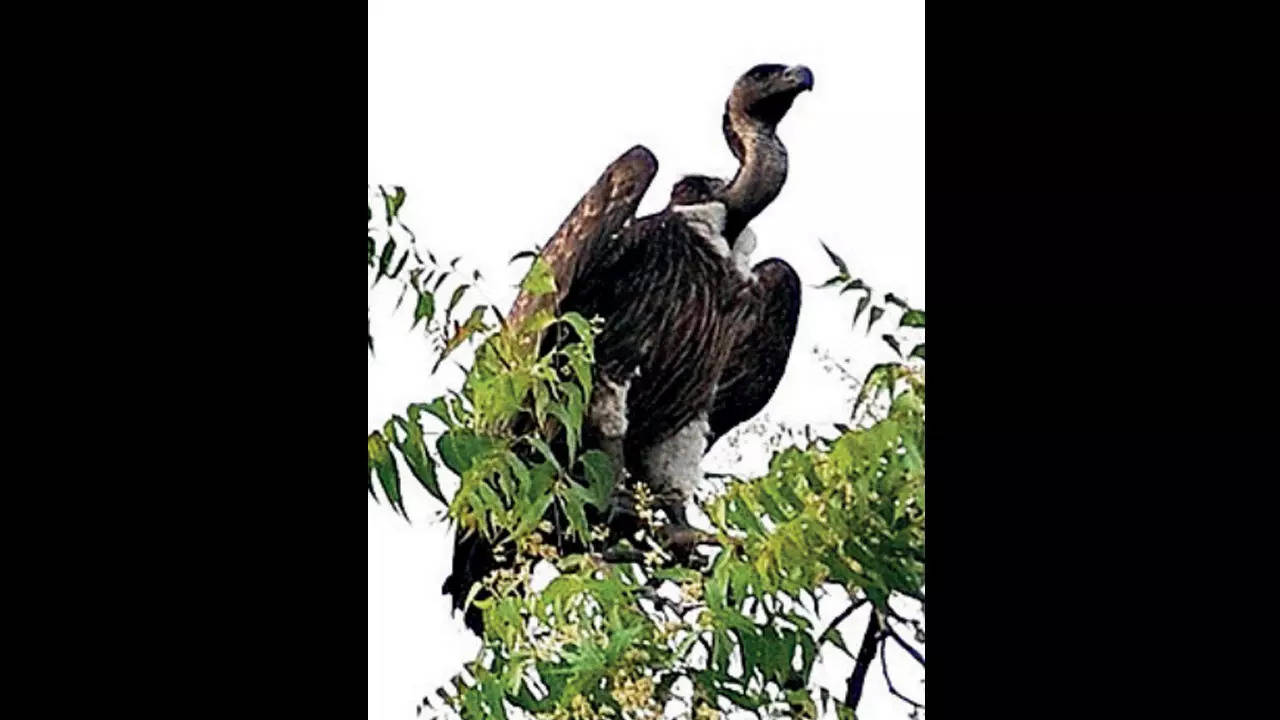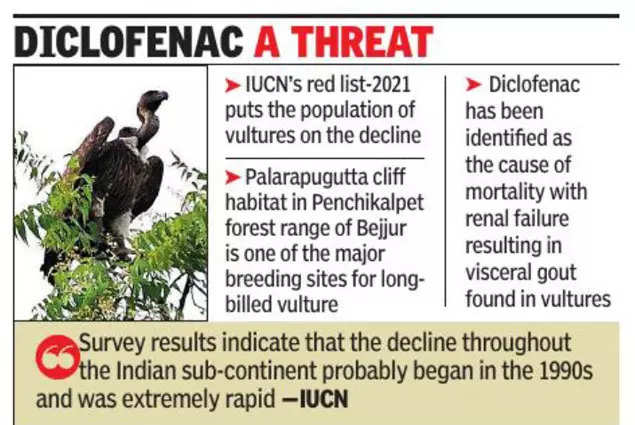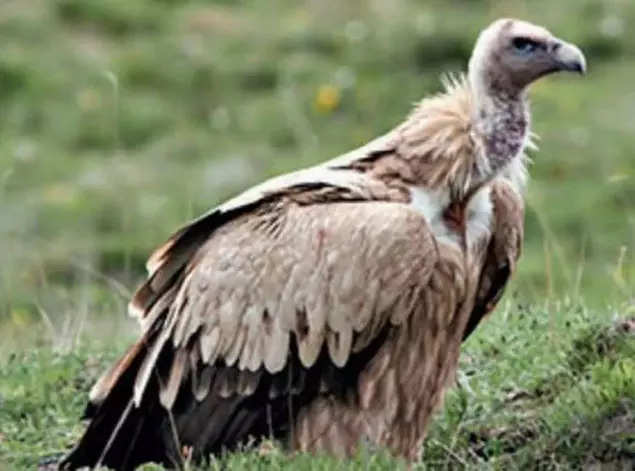
HYDERABAD: While the proposed sanctuary for conservation of vultures in Adilabad’s Bejjur has failed to take off, the International Union for Conservation of Nature (IUCN) has classified Indian vulture as critically endangered even as its population is decreasing.
IUCN’s latest red list of 2021 put the population of vultures on the decline. Palarapugutta cliff habitat in Penchikalpet forest range of Bejjur is one of the major breeding sites for the long-billed vulture.

The forest department has proposed to establish the area as Jatayu wildlife sanctuary. However, the proposal has been kept in cold storage for the last few years. The extent of the proposed sanctuary is 325 square kilometres which falls in Bejjur, Penchikalpet, Koutala and Chintalamanepalli mandals. The area has Pranathia river and Peddavagu.

Palarapugutta cliff is 200 metre high and has been identified as an ideal nesting location for vultures.
IUCN said: “The species is placed in the range of 5,000-15,000 mature individuals. Survey results indicate that the decline throughout the Indian sub-continent probably began in the 1990s and was extremely rapid.”
The vulture nests almost exclusively in colonies on cliffs and ruins. Although in one area where cliffs are absent, it has been reported nesting in trees. The non-steroidal anti-inflammatory drug diclofenac, used to treat domestic livestock, has been identified as the cause of mortality with renal failure resulting in visceral gout found in a vast majority of vultures.
“The recent ban on diclofenac in the region has, however, not eradicated its use in veterinary treatments, as it is still found in the carcasses of livestock and vultures. A second veterinary drug in use in India, ketoprofen, has also been identified to be lethal for the species. Measurements of residue levels in ungulate carcasses in India indicate that they are present in sufficient concentration to cause vulture mortalities,” said the IUCN.
The IUCN has recommended full support for the ban on the veterinary use of diclofenac and encourage attempts to implement a ban on other vulture-toxic drugs.







